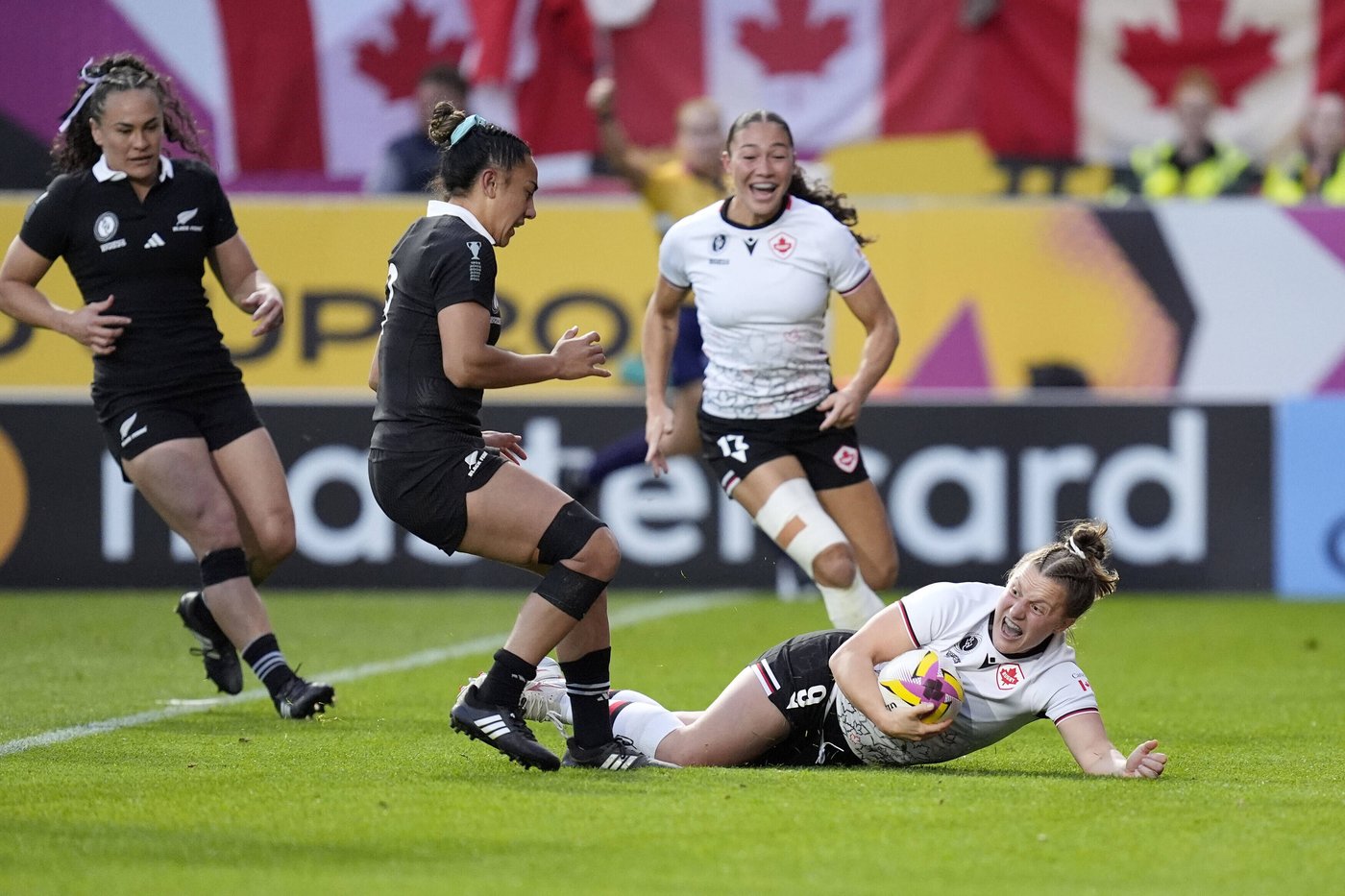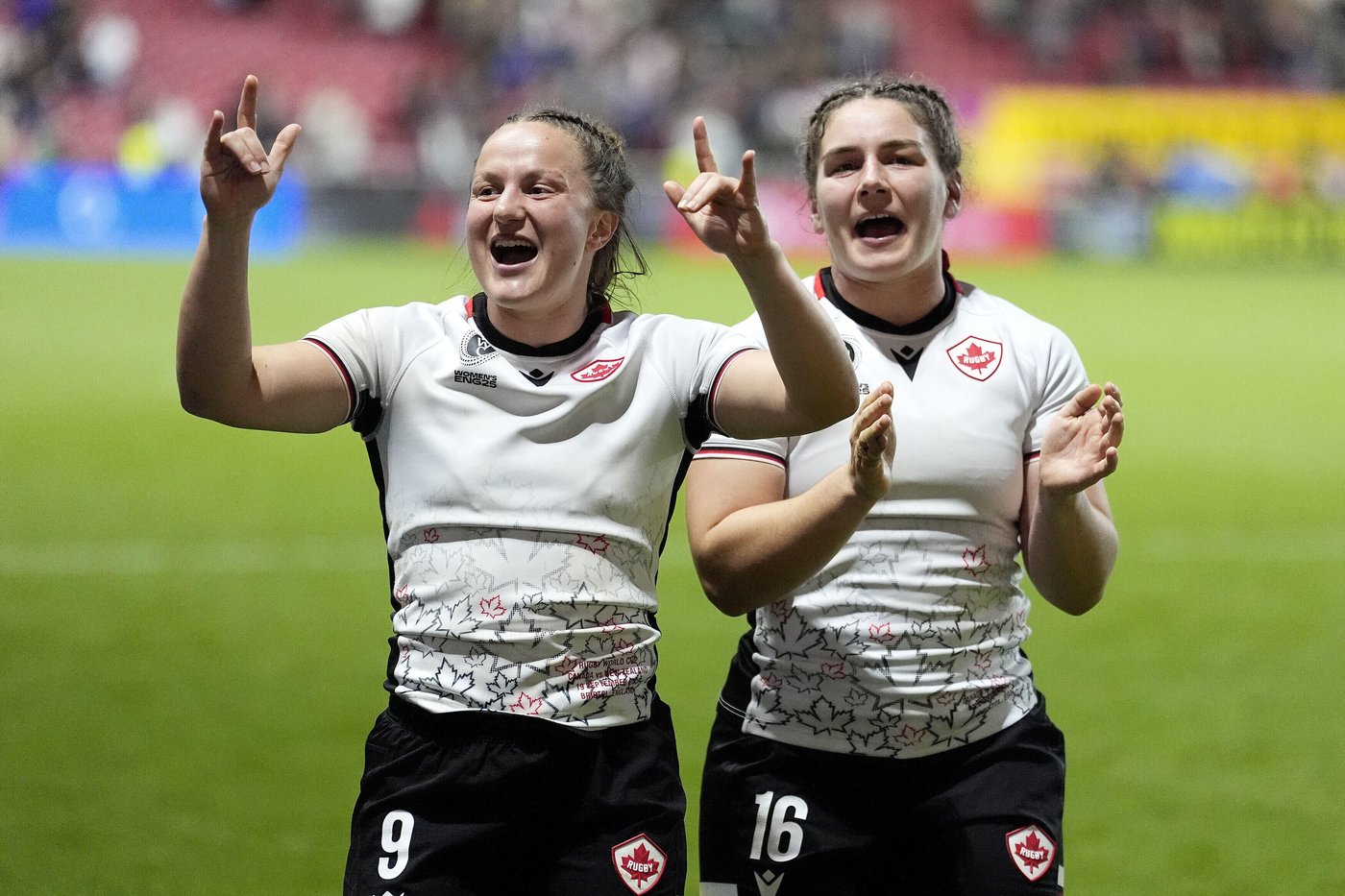Elevate your local knowledge
Sign up for the iNFOnews newsletter today!
[byline]

While coach Kevin Rouet may chart Canada’s course at the Women’s Rugby World Cup in England, Justine Pelletier presses the accelerator.
Like a jockey urging her mount down the final stretch, the five-foot-two scrum half sets the pace for Canada’s rapid-fire attack.
The 29-year-old from Riviere-du-Loup, Que., was named player of the match in second-ranked Canada’s 34-19 win over No. 3 New Zealand in last Friday’s semifinal in Bristol and she will play a key role in Saturday’s final against top-ranked England at Twickenham’s Allianz Stadium.
Pelletier is a pocket dynamo, constantly on the move and communicating with her teammates. Watch her during a game and her hands, like an orchestra conductor, are in constant motion.
Top rugby teams are well-drilled and disciplined when it comes to defence, with a line of players strung across the field. The attacking team’s goal is to poke holes in that Maginot Line.
Pelletier helps break that down, connecting and driving the Canadian attack.
Her job is eased by the physicality of the Canadian forwards. Sophie de Goede, DaLeaka Menin, McKinley Hunt and others are punishing ball-carriers.
Because the Canadian runners are so hard to bring down, opposing teams have to commit several tacklers to the breakdown. Pelletier then recycles the ball at pace and the assault continues until the defence, slowly pulled out of shape, begins to show holes.
And when Pelletier opts to swing the ball to the backs, she has an array of strike-runners ready to go.
“I’m having a lot of fun, honestly. This is just pure fun for me,” Pelletier said with a smile.
“This very fast tempo is a lot of fun for to play, because it’s very stimulating,” she added. “It’s hard, though. An 80-minute game is very hard. That’s why me and (fellow scrum half) Olivia (Apps) are a good combination, because she can come on the pitch any time and she will do the job.”
Pelletier makes it look easy.
She opened the scoring in the eighth minute against New Zealand, capping a Canadian attack with a deft show-and-go that left New Zealand star winger Portia Woodman-Wickliffe gasping for air.
In the 35th minute, Pelletier saw daylight from behind a ruck and darted to her right. Black Ferns hooker Georgia Ponsonby took her down quickly but as Pelletier’s knees hit the turf, she offloaded the ball to an onrushing de Goede who raced in for Canada’s fourth try.
De Goede was where Pelletier expected her to be
“While I was running, looking for options and looking for a hole to attack, I could hear Sophie … that she was coming. So I knew she was close enough for me to look for that offload.”
“We’ve been playing together for a long time,” added Pelletier.
It’s the kind of connections that runs through the whole Canadian team.
Going into the semifinal, the Canadian women had retained possession from a higher share of their own rucks (99 per cent) than any other side at the tournament. Canada also has the quickest average attacking ruck speed of any team (2.45 seconds), just ahead of New Zealand (2.68 seconds)
In addition to their speed, the Canadians have been rock-solid at set pieces. Canada’s success rate in the lineout (89 per cent) and scrums (100 per cent) was the highest among the four semifinalists.
Ahead of the New Zealand win, they had also made the most metres from their mauls (112) at the tournament.
Canada is blessed in having Apps come off the bench to relieve Pelletier. The sevens veteran keeps the team ticking when she enters the game.
“She’s a great athlete,” said Pelletier, who counts Apps as a friend. “She knows rugby and when she came into the 15s world, she was super-humble, worked hard to understand, asked a lot of questions. So it was very easy to share. And she has a great personality.
“She challenged me to stay on top of my game, to maybe work on some stuff that I hadn’t mastered,” she added. “Every week we have a check-in to see how it’s going and how we can approach the game. How can I help her to be a good sub and how she can help me. … I really appreciate that and I’m very grateful for her to be on board with that. Because it’s not always easy to be on the bench. But it’s also a great responsibility because ending the game is harder than we think.”
Pelletier credits Rouet for preparing the team so well, creating a game plan that is easy to understand and apply. The French native, who put aside a career as a mechanical engineer to focus on coaching, is meticulous.
“What I like is he’s thought of every single detail,” said Pelletier, who plays her club rugby in France for Stade Bordelais.
She knows of what she speaks when it comes to the 38-year-old Rouet, who was her second coach after her father. Their 12-year connection dates back to their days playing in Quebec.
“I could see his development. He was always super-detailed,” she said. “Rugby is easy for him. He sees the game so well. But what’s he’s good at is the way he explains it. … That’s the engineer (in him). Everything is detailed and works.”
—
This report by The Canadian Press was first published Sept. 24, 2025.

Want to share your thoughts, add context, or connect with others in your community?
You must be logged in to post a comment.